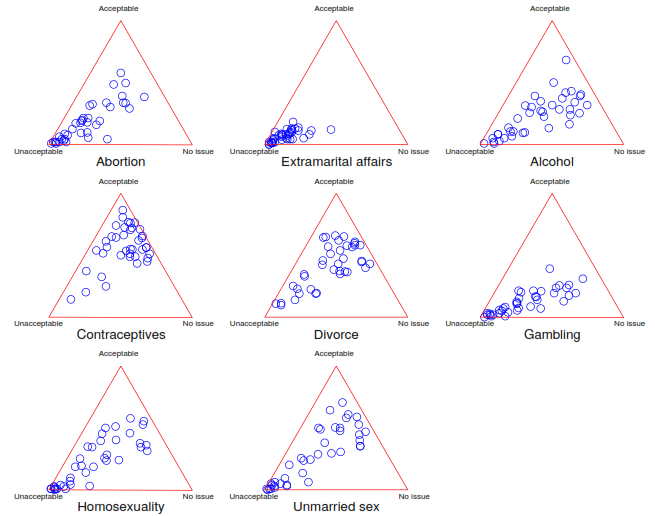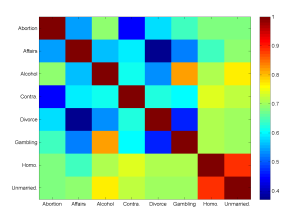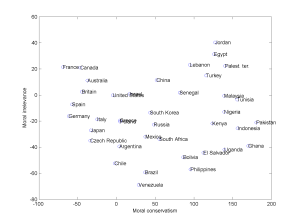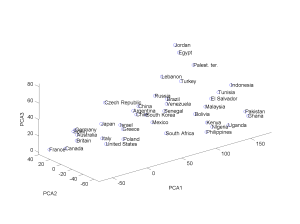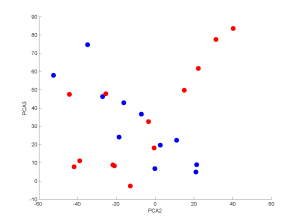Next Sunday I will be debating AI ethics at Battle of Ideas. Here is a podcast where I talk AI, morality and ethics: https://soundcloud.com/institute-of-ideas/battle-cry-anders-sandberg-on-ethical-ai
What distinguishes morals from ethics?
There is actually a shocking confusion about what the distinction between morals and ethics is. Differen.com says ethics is about rules of conduct produced by an external source while morals are an individual’s own principles of right and wrong. Grammarist.com says morals are principles on which one’s own judgement of right and wrong are based (abstract, subjective and personal), ethics are the principles of right conduct (practical, social and objective). Ian Welsh gives a soundbite: “morals are how you treat people you know. Ethics are how you treat people you don’t know.” Paul Walker and Terry Lovat say ethics leans towards decisions based on individual character and subjective understanding of right and wrong, while morals is about widely shared communal or societal norms – here ethics is individual assessment of something being good or bad, while morality is inter-subjective community assessment.
Wikipedia distinguishes between ethics as a research field and the common human ability to think critically about moral values and direct actions appropriately, or a particular persons principles of values. Morality is the differentiation between things that are proper and improper, as well as a body of standards and principles in derived from a code of conduct in some philosophy, religion or culture… or derived from a standard a person believes to be universal.
Dictionary.com regards ethics as a system of moral principles, the rules of conduct recognized in some human environment, an individual’s moral principles (and the branch of philosophy). Morality is about conforming to the rules of right conduct, having moral quality or character, a doctrine or system of morals and a few other meanings. The Cambridge dictionary thinks ethics is the study of what is right or wrong, or the set of beliefs about it, while morality is a set of personal or social standards for good/bad behavior and character.
And so on.
I think most people try to include the distinction between shared systems of conduct and individual codes, and the distinction between things that are subjective, socially agreed on, and maybe objective. Plus that we all agree on that ethics is a philosophical research field.
My take on it
I like to think of it as a AI issue. We have a policy function that maps states and action pairs to a probability of acting that way; this is set using a value function
where various states are assigned values. Morality in my sense is just the policy function and maybe the value function: they have been learned through interacting with the world in various ways.
Ethics in my sense is ways of selecting policies and values. We are able to not only change how we act but also how we evaluate things, and the information that does this change is not just reward signals that update value function directly, but also knowledge about the world, discoveries about ourselves, and interactions with others – in particular ideas that directly change the policy and value functions.
When I realize that lying rarely produces good outcomes (too much work) and hence reduce my lying, then I am doing ethics (similarly, I might be convinced about this by hearing others explain that lying is morally worse than I thought or convincing me about Kantian ethics). I might even learn that short-term pleasure is less valuable than other forms of pleasure, changing how I view sensory rewards.
Academic ethics is all about the kinds of reasons and patterns we should use to update our policies and values, trying to systematize them. It shades over into metaethics, which is trying to understand what ethics is really about (and what metaethics is about: it is its own meta-discipline, unlike metaphysics that has metametaphysics, which I think is its own meta-discipline).
I do not think I will resolve any confusion, but at least this is how I tend to use the terminology. Morals is how I act and evaluate, ethics is how I update how I act and evaluate, metaethics is how I try to think about my ethics.
